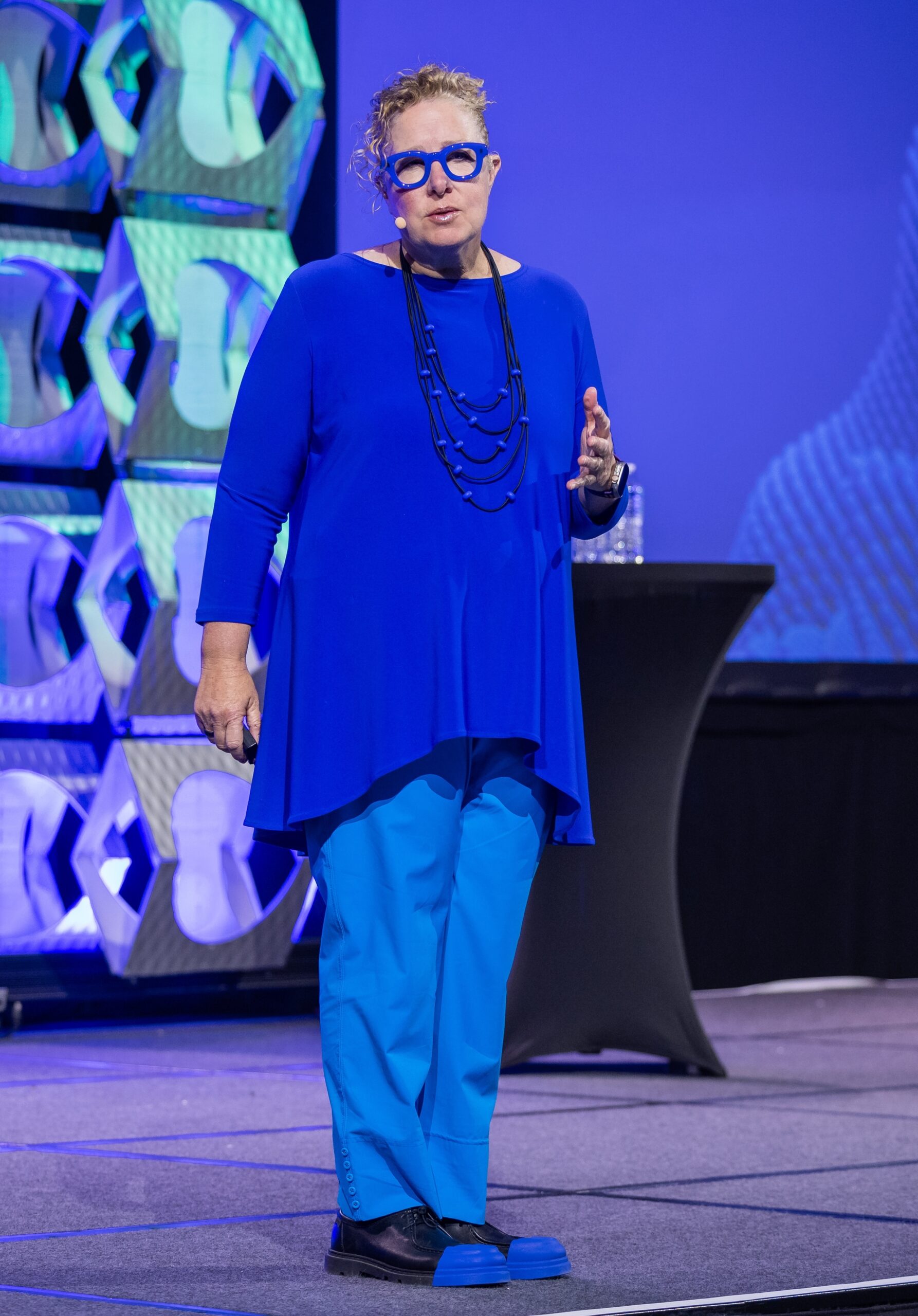





























































CULTURE: Your Invisible Operating System
The organizations that consistently outperform aren’t just leveraging better technology—they’re scaling their cultural strengths through collective intelligence.
In today’s accelerated world, most leaders understand culture drives performance. The challenge isn’t believing in culture—it’s knowing how to evolve it, intentionally.
Heather E. McGowan helps organizations do exactly that. As a globally recognized culture keynote speaker, Heather reveals how culture shapes how we think, adapt, and collaborate—especially when the pressure’s on.
Her keynotes turn complexity into clarity, giving leaders the tools to surface invisible dynamics, build greater trust in each other, and build cultures where curiosity is a competitive advantage.
Culture isn’t just how work gets done; it’s the system that determines how fast and how far your organization can go. Heather shows audiences how to shape it with intention.
If you’re looking for a culture keynote speaker who can reframe your biggest challenges, Heather equips audiences to think differently, lead boldly, and design culture on purpose.
OUTCOMES THAT MATTER
Through Heather’s culture-focused keynotes and workshops, your audience will be empowered to:
- FRAME & DESIGN: Surface the invisible elements of your culture, and intentionally design the conditions that support collaboration, innovation, and performance.
- BRIDGE & CONNECT: Transform division into productive tension by fostering intellectual humility and a culture of curiosity.
- TRUST & ACTIVATE: Build trust as a core competency, creating space for calculated risk-taking.
- SCALE & SUSTAIN: Preserve what makes your culture distinctive while evolving it to meet the demands of tomorrow’s problems.
KEYNOTE TOPICS
& OUTCOMES
Solve
Tomorrow's ProblemsTM
Harness Human Ingenuity to Navigate What's Next
Clear
on Purpose
Turning Purpose
into Performance Through a
Shared Vision
Leading in
the Age of Uncertainty
The Curiosity
Advantage
Start
With
Trust
The Lifeblood of
High-Performing Teams
The
Augmented
Imperative
Unleashing Human Potential
in the AI Era

TO BOOK
HEATHER

01.
Clarify the Future
In less than one hour, Heather empowers individuals and organizations to see the future of work and their potential in it.
02.
Trusted Learning Leader
As an author, educator, think-tank founder, and consultant, Heather has proven her bona fides as an expert on learning and the future of work many times over.
03.
Authentic & Research Based
Everything about Heather’s personal mission focuses on authenticity and honesty. Every message is deeply researched and strategically rich. This not only makes her message more impactful, but also makes her a can’t-miss presence on any keynote stage.
04.
Bespoke
Each talk is customized to your audience, grounded in humility, and focused on your needs and experiences.

READY TO SOLVE TOMORROW’S
PROBLEMS, TODAY?

